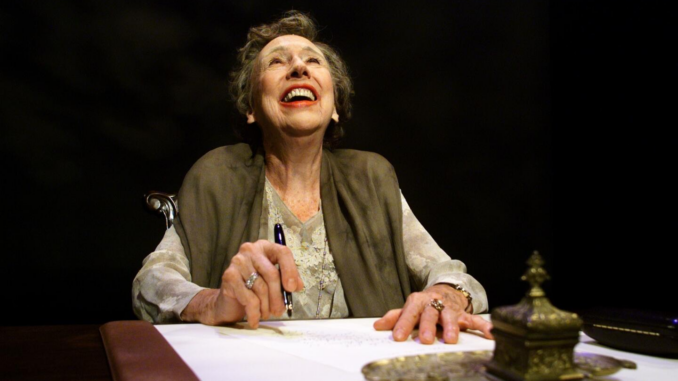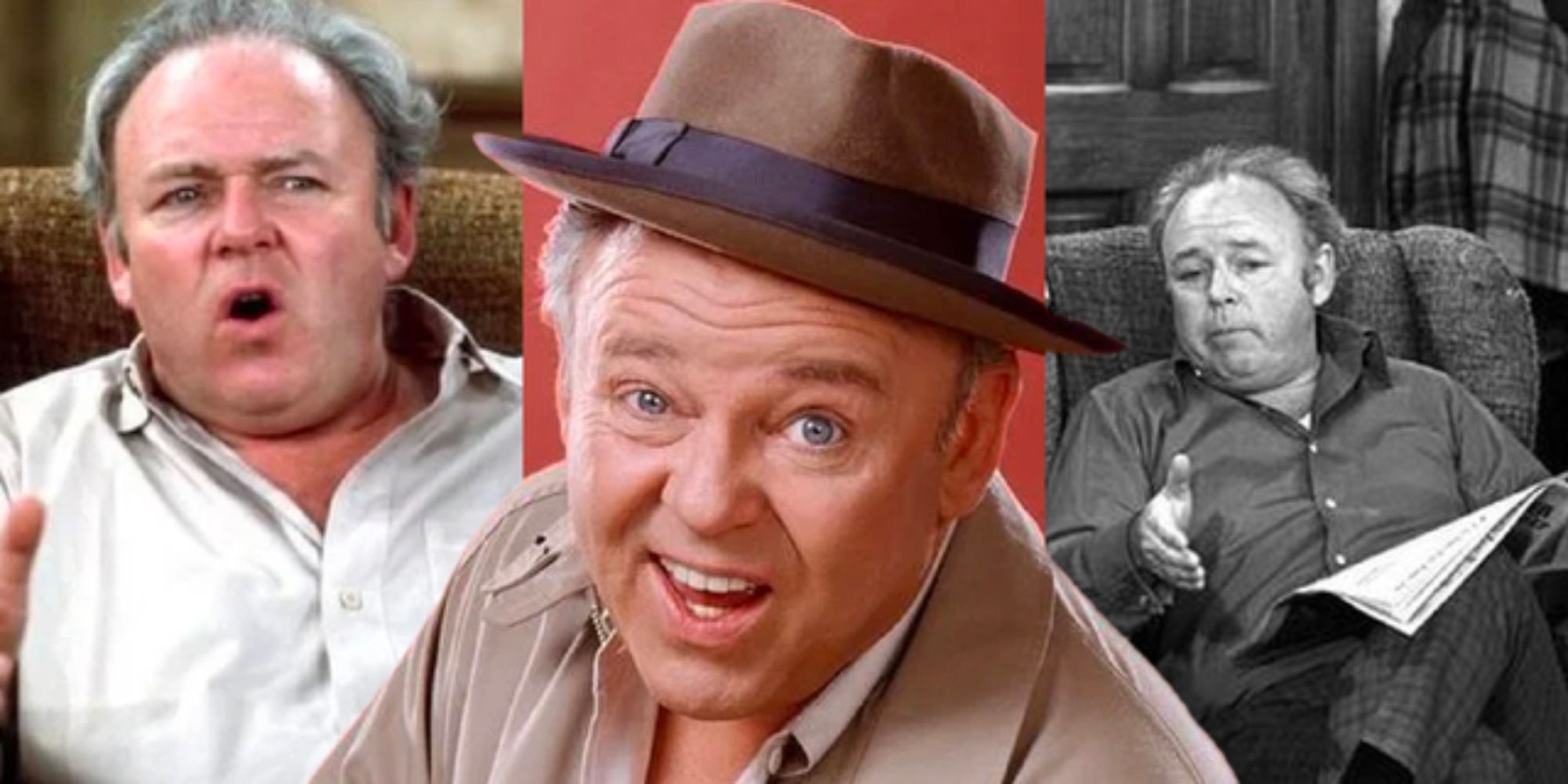
‘All In The Family’ And ‘The Jeffersons’ Revival Delivers Nostalgia — For What?
Television revivals are nothing new, but when All In The Family and The Jeffersons made their returns, they were more than just simple nostalgia trips—they were statements. These beloved sitcoms, which originally aired decades ago, were brought back in a series of live-action specials. While these shows undoubtedly pulled at the heartstrings of fans, they raised the question: What are we really celebrating when we revisit these iconic series?
In this article, we will dive into the revival of these two classic shows, examining the impact on modern viewers, the nostalgia factor, and whether these revivals stand the test of time. Let’s break down why All In The Family and The Jeffersons are more than just a quick trip down memory lane.
The Power of Nostalgia in TV Revivals
Nostalgia is a powerful force, especially in the world of television. Reviving classic series is a way to capitalize on the fond memories viewers have, creating a sense of familiarity. But what happens when the revival isn’t just about the shows themselves, but the world they represent? Shows like All In The Family and The Jeffersons come with a built-in cultural context that goes beyond entertainment.
The Revival Trend: Why Bring Back Old TV Shows?
TV revivals have surged in popularity in recent years, with series from the 70s, 80s, and 90s returning to modern screens. The main driving force behind these revivals is often nostalgia, but there’s more at play. Many of these revivals seek to introduce the characters and themes of old shows to new audiences while also offering a chance to update the narrative for contemporary issues.
For All In The Family and The Jeffersons, this was precisely the case. Both of these sitcoms tackled bold and controversial topics when they first aired. Bringing them back in a live, modern format not only capitalized on the nostalgia of long-time fans but also offered the potential to explore how far society has come—or hasn’t—since the original airings.
All In The Family: A TV Landmark That Challenged Boundaries
When All In The Family first aired in 1971, it quickly became a cultural phenomenon. The show, created by Norman Lear, featured the outspoken and often bigoted character of Archie Bunker, played by Carroll O’Connor. This was a man who embodied the prejudices and misunderstandings of the era, often with humor that was both cringeworthy and biting.
The show’s frank discussion of race, gender roles, and politics made it revolutionary for its time. In the revival, we saw these same themes explored, though with a modern lens.
The Return of Archie Bunker: A Reflection of Today’s Divisions
The All In The Family revival brought back Woody Harrelson as Archie Bunker, taking on a character that was once considered a beacon of outdated, prejudiced thinking. Today, that same character could be a symbol of the deep divisions and polarizations in modern society. The revival didn’t shy away from addressing sensitive topics, such as racism and gender inequality, and the need to confront uncomfortable truths.
But here’s the thing: while the revival allowed the old material to be reflected through a more modern, socially aware perspective, it also raised the question of whether we’re really progressing as a society or simply regurgitating the same old debates under a different guise.
The Jeffersons: Moving on Up—But to What?
The Jeffersons, which first aired in 1975, was a groundbreaking sitcom in its own right. The show focused on George and Weezy Jefferson, an African-American couple who had “moved on up” to a posh apartment in Manhattan. The series addressed race, class, and economic mobility in a way that had not been seen on television before.
George and Weezy: A Powerful Symbol of Success
The revival of The Jeffersons was not only a chance to revisit the beloved characters but also to highlight the ongoing conversation around race and class in America. In the 2020s, the themes explored in The Jeffersons still resonate. The idea of economic success and the societal challenges that come with it were just as relevant in the revival as they were back in the 70s.
However, while the revival acknowledged the progress George and Weezy made in terms of economic success, it also explored the limits of that success—something that is even more apparent today in a world that still faces systemic inequality. The big question that looms here is whether the revival of The Jeffersons successfully pushes these boundaries forward or simply rehashes the struggles of the past.
What Are We Really Nostalgic For?
When people tune in to revivals like All In The Family and The Jeffersons, what are they truly nostalgic for? Is it the characters? The stories? Or the time period in which these shows were first broadcast?
The Complex Role of Nostalgia in Social Commentary
It’s easy to get lost in the warm feelings associated with old TV shows. They remind us of a time when things seemed simpler, even if they weren’t. Yet, both All In The Family and The Jeffersons weren’t just sitcoms—they were also social commentaries. As the revivals tackled current issues, they called attention to how far we’ve come (and how far we still have to go).
But, does revisiting these shows really help us confront modern issues? Or are we simply looking for a comforting escape, a reminder of the past that doesn’t necessarily offer any answers to today’s challenges?
The Role of Live Performances in the Revival
One notable aspect of these revivals was their live format. Broadcast live, these specials allowed actors to perform in real time, giving the revival an energy that you wouldn’t get from a pre-recorded episode. It added an element of excitement and immediacy that helped these classic sitcoms feel fresh.
Live Performances: Adding New Depth to Old Characters
The live format also created a new dynamic for the actors involved. Whether it was Woody Harrelson stepping into Archie Bunker’s shoes or Jamie Foxx and Wanda Sykes portraying George and Weezy, the performances felt raw and electric. This brought new depth to characters that had already been iconic.
However, the question remains: Did the live format add anything substantial to the narratives of All In The Family and The Jeffersons, or did it simply highlight the gap between the past and present?
What We Learned from the Revivals: A Mixed Bag of Lessons
The truth is, All In The Family and The Jeffersons revivals offered both a glimpse into the past and a reflection on how much society has changed—and how much it hasn’t. While these revivals successfully brought forward critical issues of race, class, and gender, they also served to remind us that progress is not linear.
Perhaps the most important takeaway from these shows is that nostalgia, while powerful, isn’t enough to bridge the gap between where we’ve been and where we need to go.
Conclusion: The Revival’s True Purpose—Reflection, Not Perfection
The All In The Family and The Jeffersons revivals brought the past into the present, reminding viewers of the cultural significance these shows had in their time. But what did they ultimately offer in terms of a meaningful message? While they certainly succeeded in triggering nostalgia, they also raised important questions about the progress—or lack thereof—since their original airings.
Were the revivals a deep, thought-provoking social commentary, or were they just a fun way to relive the past? The answer might be somewhere in between. They didn’t just deliver nostalgia; they challenged us to reflect on the issues that continue to shape our world.
FAQs
1. Why did ‘All In The Family’ and ‘The Jeffersons’ get revived? The revivals were a response to nostalgia and the opportunity to update the classic sitcoms with modern sensibilities, while also addressing relevant social issues.
2. What made ‘All In The Family’ so groundbreaking in its original run? The show was revolutionary for its time due to its unflinching approach to controversial topics like race, gender, and politics, which were rarely tackled on television before.
3. How did the revival of ‘The Jeffersons’ address modern issues? The revival highlighted issues of race, class, and economic success, emphasizing how much progress has been made and how much still remains to be done.
4. Did the live performances of the revivals add anything to the experience? Yes, the live performances gave the revivals a raw energy that added excitement and immediacy, making the experience feel fresh and engaging.
5. Are these revivals a reflection of modern society or just a nostalgic trip? While they certainly played on nostalgia, the revivals also served as a platform to discuss and reflect on the ongoing social issues of race, class, and gender in contemporary society.
